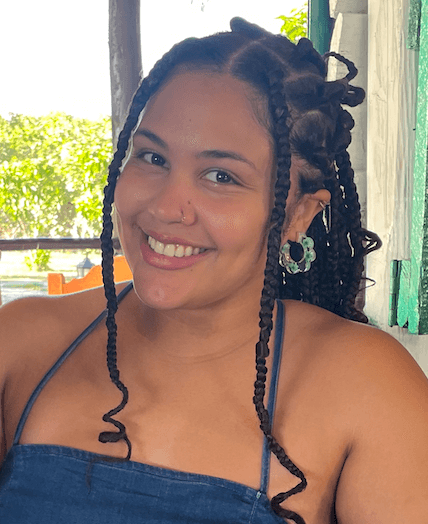Five Transferable Skills Developed in a Field Work Placement
YouthREX collaborated with students at Brock University, reflecting on their experience within community placements. In this reflection, a student discusses the unique skills and competencies she adopted through her placement and how they uniquely position her for future employment. Read about her experience below!
I’m a recent graduate of Recreation & Leisure Studies. The program focuses on therapeutic practice, using leisure, recreation, and play as tools for every individual to achieve their highest level of independence without experiencing limitations.
This past semester, I completed a placement at a local hospital, working with their inpatient acute Mental Health and Addictions Services. The unit provides 24-hour psychiatric assessment(s) and short-term treatment and stabilization for adults facing mental health challenges. My role was primarily to work alongside occupational and recreation therapists and assist in facilitating recreational programming.
Identifying My Core Competencies
I developed a variety of ‘core competencies’ through this challenging yet rewarding placement. Each of these is derived from a bank of Core Competencies to foster self-reflection, proficiency, and career readiness in Brock students, developed by Brock’s Co-Op, Career, and Experiential Education team.
1. Communicating Effectively
Throughout my placement, I believe that my engagement with individuals who are living with an intellectual disability, mental health crisis, or physical disability or who are older adults contributed to my development of open, adaptive communication. I’m aware that one of my greatest strengths is my ability to communicate and reciprocate the same energy that I receive from others. At placement, I learned that adaptive (i.e., flexible) communication is necessary, regardless of whom you are talking to – everyone responds differently, depending on how they perceive a situation or the relationship between two parties. I believe that my communication skills have evolved from being diverse and inclusive to being transparent, honest, and evoking trust with all the individuals I communicated with during my placement.
2. Practicing Intercultural Fluency
‘Intercultural fluency’ involves valuing, respecting, and learning from people who have diverse backgrounds. I am a 21-year-old biracial woman from a middle-class, single-parent household. I believe that my firsthand experiences and ability to act with intention improved my ability to empathize with others throughout my placement. I recognize the importance of acknowledging different perspectives and changing my approach to situations when required. The willingness to work with others and adapt, learn, and never assume that others will adapt to my approaches enhanced my ability to be fluent throughout my placement and work with various people.
3. Knowing Myself
Similarly, the ability to ‘know yourself’ involves recognizing one’s strengths, limitations, emotions, and biases as an individual and in diverse situations. I have learned a lot about myself in my 21 years, including the complexity of my personality. This placement helped me know even more about myself, including that I am an ambivert, non-judgmental, and in touch with my emotions and feelings, making me a very effective communicator. I treat people equally and fairly without bias when making decisions because everyone should be given an equal opportunity.
4. Being Curious
‘Being curious’ is necessary to seek innovative ideas, opportunities, and knowledge. An open mind invites differences, new information, and the chance to learn. Throughout my placement, my supervisor was flexible in what my tasks might entail; because of this, I could use my free time to be curious. I was permitted to review various training resources, including different programs, techniques, measuring tools and scales, and to ask her questions freely. I was curious and left my door open, which allowed me to network and build relationships with a fellow intern and my supervisor. Being open-minded helped me adapt to change, learn, and get the most out of my placement.
5. Acting Innovatively
Finally, ‘acting innovatively’ involves identifying problems and creatively finding solutions. In my time at placement, I often had to act quickly to develop small icebreaker games, such as riddles, jokes, and general discussions, seeking common ground and building relationships between myself and the patients. If I saw that a recreation therapist leading a program was having difficulties generating debate, I tried to help prompt or start the conversation. I developed trust and rapport with my supervisor, which gave me more flexibility and the willingness to act innovatively to share my ideas, creating opportunities for myself and patients in the program.
When Core Competencies Become Transferable Skills
Overall, my field work placement experience helped me reflect upon the skills and competencies I currently hold and where I still have gaps and areas for improvement, which will undoubtedly help me as I embark on my professional development and career journey post-graduation.
The above competencies I described may be considered ‘transferable’ skills. The wonderful thing about transferable skills is that they are yours to keep! Wherever you take your career, the transferable skills you adopt in one context and carry on your toolbelt will help you be more competitive in today’s fast-paced job market – helping you adapt, change, and grow, personally and professionally. Suppose I can apply my transferable skills of being an effective communicator or culturally fluent across various job roles and industries? My ability to reflect upon these skills and provide concrete examples of how I developed and applied them in the field might signal to an employer that I am likely to be a valued contribution to the organization. I intend to continue improving my skills by being honest about areas I need improvement in and asking questions, allowing for opportunity, growth, and change in my personal and professional life.
The pandemic has created a lot of change in the work world in several ways. Virtual platforms, shorter workweeks, and working from home have become the new normal. The ability to transition from distinct roles using my transferable skills will show that I am attractive and flexible to a future employer, positioning myself for employment post-graduation. Remember – no matter how ‘unmatched’ your skillset might appear, you can use your transferable skills to set yourself apart from other candidates.


